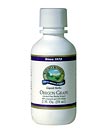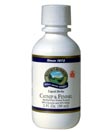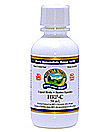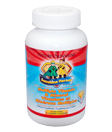Alternatives to Ritalin by Robert Levert
Hyperactivity, or attention deficit disorder (ADD/ADHD), is ten times more common in boys than in girls, but yet it is not considered a common disorder. According to an article in the British Journal of Psychiatry, only 3 percent of children are actually diagnosed with an attention deficit disorder. But if your child has been diagnosed with ADD, it may well be your number one concern. Does your child need to be on Ritalin to be able to attend school?
On his webpage breggin.com/ritain.html, Dr. Peter R. Breggin, M.D., associate faculty at The Johns Hopkins University Department of Counseling, says that “our society viewed with loathing those who "pushed" stimulant drugs on children. Yet today there are more children taking Ritalin and amphetamine from doctors than ever received them from the illegal pushers. Furthermore, the ready availability of prescribed stimulants had led to their increasing illegal use by children and youth. What has happened to our society's values? How can we be so blind to the implications of the widespread prescribing of stimulants? Does a drug become "safe" simply because it is prescribed by a doctor”?
In his book Why Your Child is Hyperactive (Random House, 1975), Dr. Benjamin Feingold says that his study and clinical practice have convinced him that eliminating all synthetic food additives from a child’s diet will resolve hyperactivity.
A study cited in the journal Pediatrics reported that more than 50 percent of hyperactive children show fewer behavior problems and had less trouble sleeping when put on a restricted diet free of all artificial and chemical food additives, chocolate, monosodium glutamate (MSG), preservatives, and caffeine. Great quantities of sweets and refined foods can lead to hyperactivity.
Can dietary supplements and herbs help in any way? Here are just a few suggestions that I heard in the field. One manager testified that she uses Oregon Grape in combination Slow Release Ginkgo and Lecithin with great results; another one uses Acidophilus/Bifidobacterium with success; another one uses GraPine which proved effective also; and yet another one works on eliminating parasites with black walnut. It is also wise to check for allergies.
Other products that have proved beneficial are Valerian, Passion Flower, Kava Kava, Catnip & Fennel, STR-J, STR-C, Super Algae, Stress Formula, and Sunshine Soft Chew Multi Vitamins . In his book The ABC Herbal, Steven Horne says that herbal minerals help with hyperactivity and sleep disorders, so you may want to try Essentials Liquid Minerals. Some studies indicate that HRP may help control hyperactivity in children. Give them a try; you can be sure these natural products won’t harm your child, but may be beneficial. The Germans have treated hyperactive children with valerian since the 1970s.
According to several sources, hyperactivity may be caused by an accumulation of poisons and heavy metals in the body. If so MC and Essentials Liquid Minerals, which contain a variety of natural chelating substances, can be used to bind with heavy toxic metals and rid them from the body. Blue Vervain (Verbena hastata) extract in a glycerine base is a natural tranquilizer that has been used for nervous disorders and insomnia. According to Dr. Edward E. Shook, author of Advanced Treatise in Herbology, glycerine unites with many insoluble poisons and various forms of heavy metals and will often dissolve them and carry them out of the system.
Even though we don’t know for sure what causes hyperactivity or ADD, we do know it is a disorder of certain mechanisms in the central nervous system which may be caused by chemical imbalances in the brain. Consequently, calcium & magnesium, the B-complex vitamins as well as the essential fatty acids (Super Oil, Evening Primrose Oil, and Flax Seed Oil) are needed to help nourish and balance the nervous system, promoting healthy nerve functions.
Yes indeed, there are alternatives to Ritalin!
Note:
ADHD is a developmental disorder meaning that certain traits will be delayed in the ADHD individual. These traits will develop but just at a much slower rate then the average person. With ADHD it has been estimated that this lag could be as high as thirty to forty percent in the development of impulse control. Symptoms of ADHD are often seen by the time a child enters preschool. Those with ADHD typically have a greater degree of parent-child conflict and emotional reactivity. During the elementary years an ADHD student will have more difficulties with work completion, productivity, planning, remembering things needed for school, and meeting deadlines. They will also have an increased chance of failing a school year.
The incident of speech problems, central auditory processing difficulties, and coordination problems are all higher then that of the general population. A marked decrease in academic skills such as reading, spelling, or math is common with children who have ADHD. Only five percent of those with ADHD will get a college degree compared to thirty five or forty percent of the general population. Thirty seven percent of those with ADHD do not get a high school diploma even though many them will receive special education services.
Social impairment for those with ADHD are typically is seen in school or at work. They often have more troubled relationships with peers or family members. At the workplace they change jobs more often and are more likely to get fired. Their income level does not rise as quickly as their peers even when education level, IQ, and their neighborhood is accounted for. Thirty five percent of all ADHDers will be self employed in their mid-thirties. Those with ADHD are at greater risk of: injury, abnormal risk taking, smoking, having learning disabilities, other mental disorders, teen pregnancy, substance abuse, involvement with the criminal justice system, and having a poorer driving record.
While this sounds hopeless there is also much evidence to support that early diagnosis, changes in nutrition, less exposure to heavy metals, less exposure to environmental toxins and emotional copying techniques can help these individuals become happy, healthy, successful adults.






